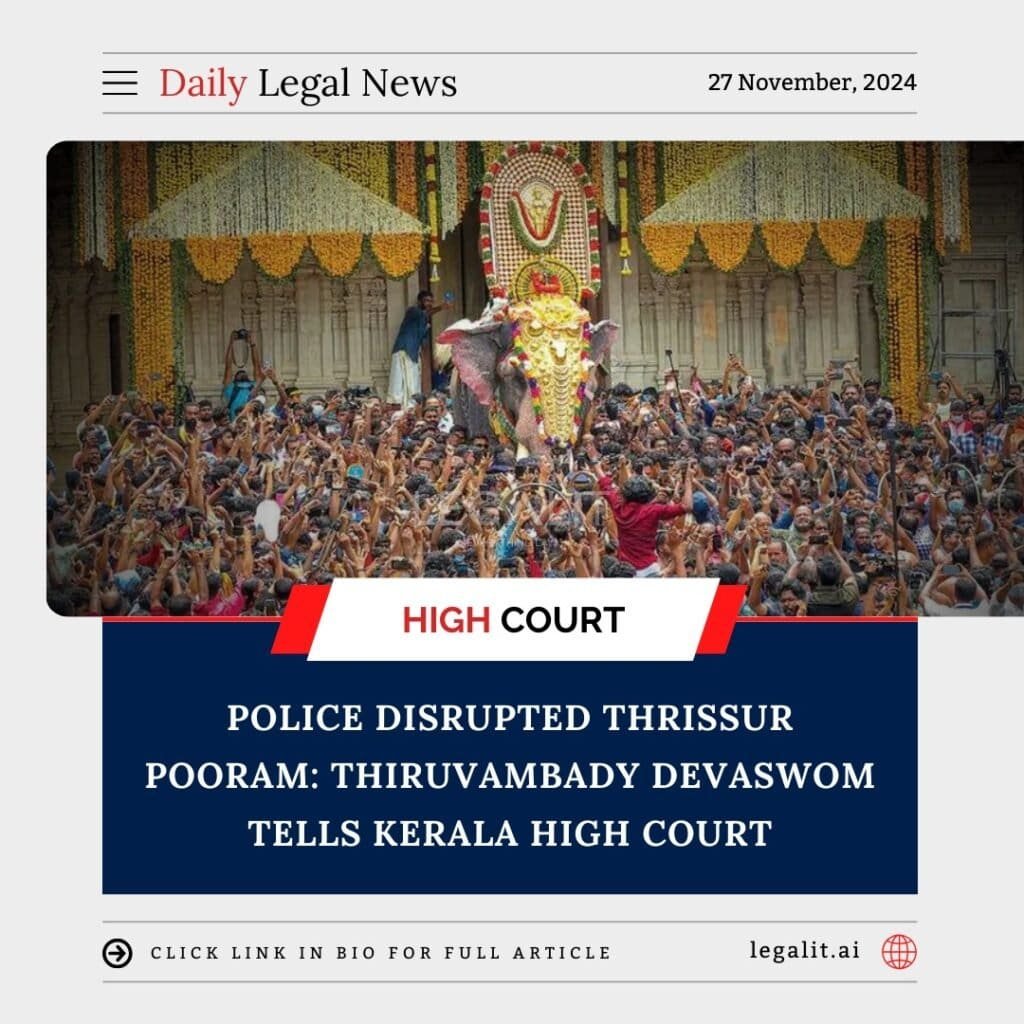
The Thiruvambady Devaswom, one of the key organizing bodies of the famous Thrissur Pooram, has approached the Kerala High Court claiming that the police disrupted the smooth conduct of the event. The temple trust has alleged that the police interference led to a disruption of the religious and cultural procession, which is one of the largest and most important festivals in Kerala.
Background:
Thrissur Pooram is a renowned annual temple festival held in Thrissur, Kerala, celebrated for its grand procession of decorated elephants, drum performances, and fireworks. The Thiruvambady Devaswom, which is one of the two primary participating temples in the event, accused the police of creating unnecessary hurdles and obstructing the traditional rituals and performances. The temple trust has raised concerns that such actions could undermine the sanctity and significance of the Pooram celebrations.
Court’s Rationale:
The Kerala High Court, after hearing the petition, will likely consider whether the police actions were justified in the interest of public safety and law enforcement or if they interfered unjustifiably with the cultural and religious rights of the devotees. The court is expected to evaluate the extent of the police’s involvement and whether it infringed on the freedom to practice religious and cultural events as per established traditions.
Existing Measures:
The Thrissur Pooram has faced issues in the past regarding crowd control and safety, with authorities taking measures to ensure public order during such large-scale events. However, this legal development suggests tensions between maintaining law and order and respecting cultural traditions.
Conclusion:
The petition filed by Thiruvambady Devaswom seeks to address the alleged police disruption during the Thrissur Pooram and restore the festival’s proper conduct. The Kerala High Court’s ruling on this matter will determine the balance between law enforcement and the protection of cultural practices.